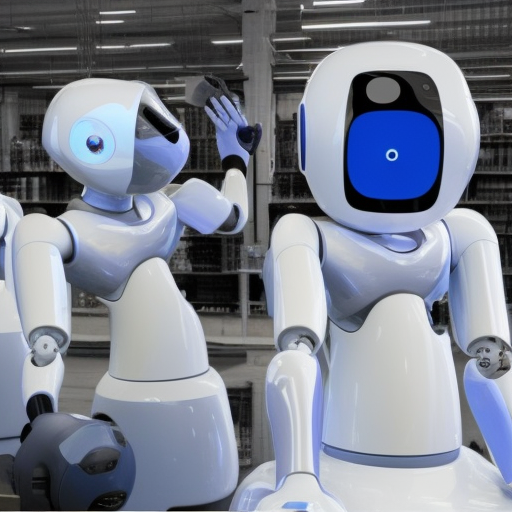Many people in the workforce are worried about losing their jobs to robots and other forms of automation. Even if robots are improving and gaining new capabilities, not all jobs are equally vulnerable to automation. In this post, we’ll go through which occupations have the lowest and biggest risks of being automated away.
Positions with the Lowest Potential for Harm:
Careers in healthcare, such as those held by doctors, nurses, and other medical professionals, are particularly challenging for robots to replace because they necessitate human qualities like compassion, understanding, and analytical thought. AI and robotics can be helpful tools for healthcare workers, but they aren’t going to completely replace humans anytime soon.
Professors: The ability to think creatively, empathize with students, and interact with them effectively are all human qualities that are difficult for machines to imitate. Although automated systems might be useful for tasks like grading and data analysis, human interaction during instruction is crucial for students’ development as learners.
Professionals in the field of social work: Empathy, communication, and the ability to solve problems effectively are all human qualities that are difficult, if not impossible, to reproduce in a computer. The work that social workers do to help individuals and communities overcome obstacles and enhance their quality of life is complex and subtle, making it challenging for computers to comprehend.
Robo killer for iphone.end those spam calls.
Risky Work:
Workers in the manufacturing sector: your jobs may be at jeopardy as automation technology advances. The necessity for human employees in manufacturing has decreased as machines have replaced them with better efficiency and accuracy in completing routine and physically demanding activities.
Employees at retail stores: self-checkout machines and automated customer service systems pose a threat to the jobs of cashiers, sales associates, and customer support personnel. The need for human retail workers will decrease as more of their activities can be done by machines.
Truck drivers, delivery drivers, and cab drivers are just some of the transportation workers who could be out of a job if self-driving cars become more commonplace. As the technology behind autonomous vehicles develops further, it’s conceivable that these positions will be taken over by robots.
In conclusion, while many workers worry about being replaced by robots and other forms of automation, not all jobs are equally vulnerable. occupations that are repetitive or physically demanding are at greater risk of being automated away, whereas jobs that involve high levels of creativity, empathy, and interpersonal skills are at lower risk. Employees would do well to keep abreast of developments in robotics and automation and to cultivate abilities that are challenging for machines to mimic.





